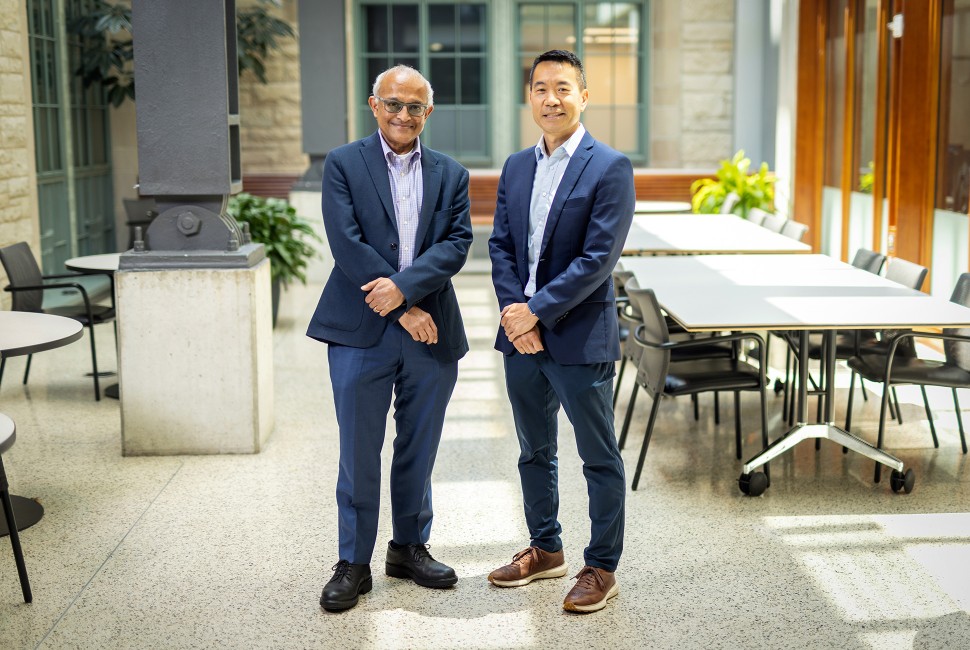Northwestern University has launched an institutional network dedicated to the integration of data science and artificial intelligence (AI) across all aspects of research and education.
The Northwestern Network for Collaborative Intelligence (NNCI) will bring together University experts in data science and AI to empower all Northwestern faculty and students to use and benefit from AI tools in their work. The NNCI aims to create a robust ecosystem of collaboration between Northwestern researchers and external organizations — including businesses, government agencies and nonprofits — to leverage AI in addressing societal needs. The network also will help to ensure that all students have access to a baseline education in data science and AI to prepare them for the demands of an evolving workforce.
The NNCI is one result of work from the Data Science and Artificial Intelligence Steering Committee, which spent much of the last year in cross-University discussions to devise the best strategy for supporting efforts in this rapidly changing field.
“I am incredibly grateful to the steering committee for helping to define a new vision for the University in this critical area,” Northwestern Provost Kathleen Hagerty said. “The Northwestern Network for Collaborative Intelligence is a unique model that recognizes the immense potential of data science and AI to transform nearly all aspects of higher education.”
Northwestern faculty members Abel Kho and V.S. Subrahmanian have been appointed as the founding co-directors of the NNCI. Kho is a professor of medicine (general internal medicine) and preventive medicine (biostatistics and informatics) at Northwestern University Feinberg School of Medicine. He is the founding director of the Institute for Artificial Intelligence in Medicine and a leader in developing novel methods to integrate and analyze health data. Subrahmanian is the Walter P. Murphy Professor of Computer Science in Northwestern’s McCormick School of Engineering and a faculty fellow in the Roberta Buffett Institute for Global Affairs at Northwestern. He is an international leader in the use of AI for national and global security, as well as in various other applications, and is the founding director of the Northwestern Security and AI Lab.
“Data science and AI are reshaping every aspect of society,” Kho said. “Our goal is to foster an environment where all faculty and students feel confident using AI technologies to make advancements in their respective fields.”
Housed within the Office of the Provost, the NNCI will act as a central hub that connects to and supports units throughout the University. This will include initiatives based in individual schools as well as research centers and institutes dedicated to cross-disciplinary study of specific topics or needs. The model is designed to be adaptive over time, allowing new initiatives to arise and connect to the central network to promote innovative applications of these transformational technologies.
Beginning this summer and throughout the fall, NNCI will sponsor a number of events for the Northwestern community to explore the impact of AI on topical areas. NNCI will build experiential learning opportunities for Northwestern students at all levels.
“With this effort, we believe there’s an opportunity to establish the University as a world leader in data science and AI across many disciplines,” Subrahmanian said. “I look forward to connecting with key leaders throughout the Northwestern community to help shape this exciting, cross-disciplinary initiative.”


